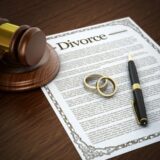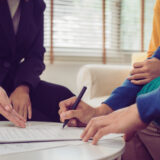Bikers (and moped riders) and cyclists are much more vulnerable than people in enclosed vehicles. This means that you need to take the possibility of accidents very seriously. Your top priority should be to prevent them. You must, however, recognize that you cannot prevent all accidents. You can, however, be prepared for them.
Accident prevention
Doing all you can to prevent accidents not only keeps you safer but can also help your case if you subsequently need to pursue a claim against a third party. One of the issues with civil injuries claims in general, and road accidents in particular, is that it can be hard to determine who was at fault. The more you can demonstrate that you took all reasonable steps to protect yourself (and to avoid harming other road users), the easier it can be to progress a claim.
For practical purposes this means that you need to have good insurance, take care of your bike (and keep records of all maintenance), have appropriate safety gear with you at all times (e.g. a first aid kit) and adjust your behaviour according to the conditions in which you are biking/cycling. For example, slow down in wet weather.
The importance of insurance
Bikers are legally required to have insurance but cyclists, at present are not. It is, however, strongly recommended to take out specialist insurance for cyclists. This can not only protect you if you are genuinely at fault but also protect you from being blamed for an accident that wasn’t your fault. Quite bluntly, uninsured cyclists may find it very difficult to go up against drivers who have the backing of an insurance company.
The value of cameras
Increasing numbers of drivers are using dash cams, but you cannot count on them to share the footage with you (unless it makes them look good). If possible, therefore, you should invest in a helmet camera for yourself.
Technically, these are for keeping a record of any incidents in which you are involved. In practical terms, however, they can also be very useful for persuading drivers to treat you with some consideration. They can also dissuade drivers from trying to blame you for accidents which were not your fault.
Accident management
If, despite all the measures you have taken, you end up the victim of an accident, here are the steps you should take.
Note the facts of the situation
If the incident was caused by a person then you want to get their name and insurance details of the person. If they don’t stop then try to get their licence plate and a description of the vehicle. Basically, note anything you can, it’s better than nothing.
If it was caused by a hazard, such as a pothole, then you want to get an accurate record of its size, depth and location. If possible, try to use something to show scale. Obviously, be careful to look after your personal safety while you do this.
Regardless of who or what caused the incident, you want the names and contact details of any witnesses, plus the exact location of the incident. Your phone probably has GPS so you can get the coordinates as well as the designated address, back this up with photographs. Try to include any key features such as landmarks.
You also want to get photos of the scene, any vehicles involved in the incident, any damage to your bike or equipment (e.g. helmet) and any injuries caused by the incident.
When photographing vehicles collect the licence number if at all possible along with shots of all four sides of the vehicle (and ideally the roof), even if they are not damaged. Frankly, you don’t want subsequent damage being blamed on you. If possible get a picture of any serial numbers (e.g. on the windscreen) as they can act as a double-check on the licence plate. That said, it is fairly unusual for vehicles to have false plates.
Keep all property you had on you at the time of the incident, even if it’s damaged beyond repair. You may need it later for evidence.
Go to your doctor/hospital and report the incident to the police
The order in which you do this will depend on the seriousness of your injuries. You should aim to report the incident to the police immediately after the event and certainly within 24 hours. If, however, you feel you need urgent medical attention then that comes first.
Keep track of all expenses involved in making these reports along with the details of any treatment you receive. Similarly, keep track of any other consequences you experience and/or expenses you incur as a result of the incident.
Report the incident to your insurance company
Insurance companies often mandate that incidents be reported to them within a certain period unless there is a very good reason for you to delay, for example, you need urgent medical attention.
Contact a lawyer
Always make all claims for compensation through a lawyer and never accept an offer of settlement without having it checked by a lawyer who is working for you.

